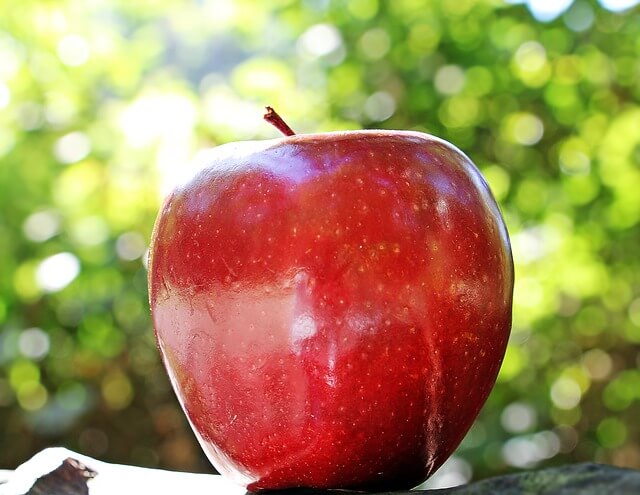
This is a true story of a man who had been called as a weirdo for over ten years, but finally made the impossible into the possible.
His name is Akinori Kimura (1949.11.8 ~), a Japanese farmer who developed revolutionary apple cultivation method without any use of pesticides and fertilizers.
It had been considered to be impossible to grow apples without any use of pesticides and fertilizers for a long time.
Therefore, the apples grown by Kimura are called as “miracle apples.”
Kimura’s book was also featured in the blog “IMAGINE PEACE” of a Japanese multimedia artist Yoko Ono.
Akinori Kimura (1949.11.8 ~)
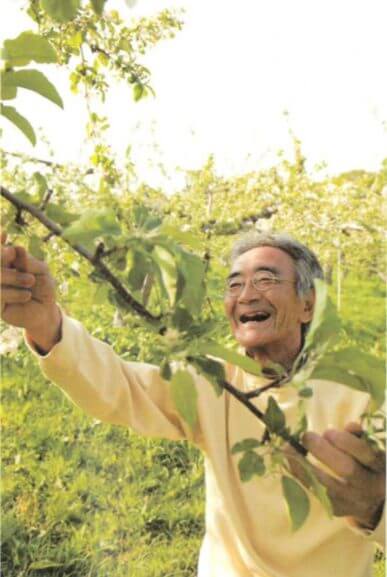
The Life of a Man Who Made Miracle Apples
Kimura was born in Iwaki-cho (current Hirosaki city), Aomori Prefecture, Japan in 1949.
In 1971, when he was 22 years old, he was married into his wife’s family, the Kimuras.
His wife’s family was farm family who mainly grew apples.
Aomori Prefecture is Japan’s largest producer of apples.
It all started when he decided to grow apples without any use of pesticides and fertilizers.
One day, his wife, Michiko got serious disease.

She would often get sick in bed after she spread apples with pesticides, because she was highly sensitive to pesticides.
Her skin became red and swollen all over her body as if she was poisoned by lacquer.
At worst, she was sick in bed for a month.
Her body got riddled with pesticides when she sprayed them to apple trees dozen times a year.
Kimura was knocked out by his wife’s illness.
I have got to do something about the pesticides.
That was the reason he decided to grow apples without any use of pesticides and fertilizers.
However, everyone around him had repeatedly said to him.
Are you planning on growing apples without any use of pesticides and fertilizers?
Are you nuts?
That’s impossible!
For Japanese farmers in 1970s, it was a common practice to spray lots of pesticide to grow apples.
Actually, Japanese farmers had been said from their parents as follows.
Spread pesticide so that the field turns white.
Grow apples with pesticide.
Therefore, they called Kimura as nuts.
However, Kimura challenged to grow apples without any use of pesticides and fertilizers with the support of his father in law, Seiji.
The Revolutionary Book “Natural Farming”
Kimura referred to Masanobu Fukuoka’s book “Natural Farming.”
Masanobu Fukuoka (1913-2008) is a Japanese farmer and philosopher celebrated for his natural farming and re-vegetation of desertified lands.
Masanobu Fukuoka (1913-2008)

Source – http://naturalfarming.org/node/9
Fukuoka was a proponent of no-till, no-herbicide grain cultivation farming methods traditional to many indigenous cultures.
He created a particular method of farming, commonly referred to as
Natural farming
Do-nothing farming
Fukuoka says in his writings,
Nowadays, crops are no longer products of nature, but in a sense they are almost petroleum products.
Thus, they could pose a hazardous risk to human health.
Fukuoka denied conventional artificial farming as violating natural providence.
Then, he established the natural way of farming or Do-Nothing Farming.
His natural farming method is a kind of Copernican revolution in agriculture.
The five principles of natural farming are the follows:
- Human cultivation of soil, plowing or tilling are unnecessary, as is the use of powered machines.
- Prepared fertilizers are unnecessary, as is the process of preparing compost.
- Weeding, either by cultivation or by herbicides, is unnecessary; instead, only minimal weed suppression with minimal disturbance should be used.
- Applications of pesticides or herbicides are unnecessary.
- Pruning of fruit trees us unnecessary.
Fukuoka’s Do-Nothing Philosophy is consistent with that of Japanese Shinto Philosophy.
In Shinto Philosophy, it is considered that if people live their lives in accordance with the spirit of kannagara, everybody becomes happy.
The spirit of kannagara teaches how people on earth should live.
Kannagara means the way or path of God, indicating,
You should live in accordance with the law of the natural order.
The spirit of kannagara is also seen in Hayao Miyazaki’s animated films and it has been firmly rooted in Japanese spirits.
The spirit of kannagara could also be summarized as,
Co-exist with nature
This is the most important thing in Shinto Philosophy.
Therefore, it can be said that Fukuoka’s natural farming is the one in accordance with the spirit of kannagara to live in harmony with natural surroundings.
Fukuoka’s Do-Nothing philosophy had a profound impact on Kimura.
However, in the 1970s, nobody succeeded in growing apples without any use of pesticides and fertilizers.
Therefore, Kimura resolved to do such a great thing that no one had ever achieved.
If the natural farming is realized for apples, it will be great!
For his parents’ generation, it was common sense to use pesticides and chemical fertilizers for growing apples.
However, Kimura had always wanted to try a new farming method entirely different from the conventional farming method of his parents’ generation.
Thus, he challenged it with trial and error.
At first, he studied natural farming methods in a library.
First, I will grow apples with a reduced amount of pesticides.
Then, I will eventually try to grow apples without any use of pesticides and fertilizers.
Kiuchi made compost to reduce the amount of the pesticides.
He was 25 years old at that time.
Keep Losing for 10 Years
The first year, he reduced the use of pesticides from a dozen times a year to half-dozen times a year.
The next year, he reduced it to three times a year.
Furthermore, in the third year, he reduced it to once a year.
Even though disease and pest damaged some of the products, Kimura was satisfied with the harvested apples.
In addition to that, his sales were not so bad, because he saved the cost of pesticides.
As a result, he gained more confidence.
Then, I will try pesticide-free production of apples.
In 1978, Kimura challenged pesticide-free production of apples in earnest.
At that time, he was 28 years old.
However, it was extremely difficult to grow apples with no use of pesticides, because of the humid temperate climate of Japan.
Kimura had four apple orchards.
In the first year, he tried to grow apples with no pesticides in one of his orchards.
Generally, apple blossoms are in full bloom in spring in Japan.
But, the apples grown by Kimura with no pesticides came into flower in September.
However, the apples did not ripen and they were as small as golf balls.
Kiuchi failed in growing apples with no pesticides.
But, he never gave up.
He cut weeds and got rid of pests all day.
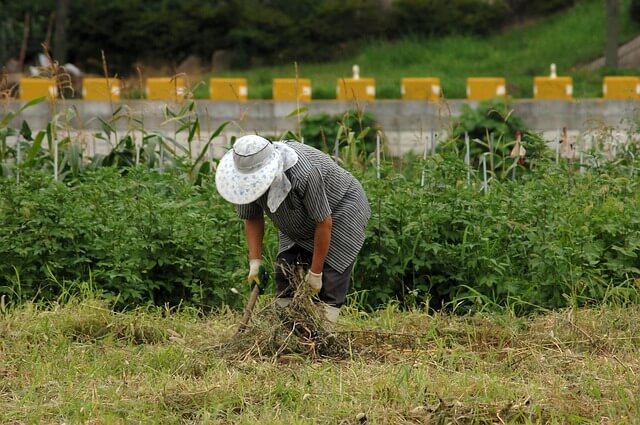
It took him a lot of time to do all this every day.
He also performed interesting experiments to reduce disease and pests by scattering garlic, onions, soy sauce, milk, vinegar around the orchard.
However, despite all his efforts, pests kept growing.
The apple blossoms did not bloom.
On the contrary, there is no sign of doing well.
Kimura made up his mind to close off his retreat.
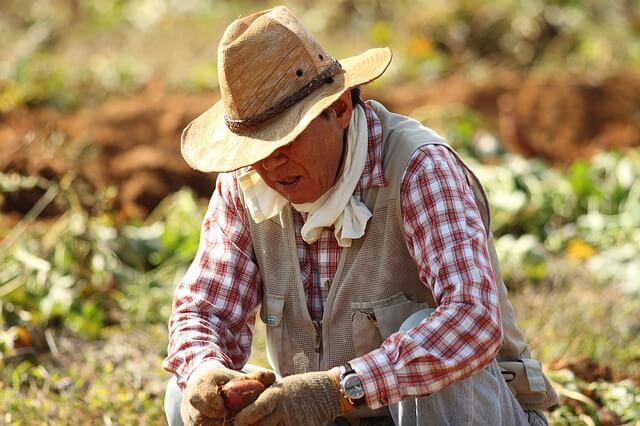
In the 4th year, he decided to grow all apple trees of his orchards without any use of pesticides and fertilizers.
In this way, he chose to create the hard condition so that he had to fight with his back against the wall.
However, he was thrust into the harsh reality.
He lost the family’s only source of income from apple cultivation.
Kimura became disabling because he was broke.
Thus, he started working as a long-distance truck driver to feed his family.
It was so tough job that he would spend four or five nights in his truck.

It has been about six years since he started pesticide-free production of apples, but the condition of the orchards got worse every year.
He was at a dead end after long series of failures.
Kimura turned 34 years old at that time.
There were about 800 trees in his orchards.
But they had not bloomed for many years.
One day, Kimura touched one of the trees.
It was so weakened that the trunk was wobbly by just touching.
If I continue growing them like this, they all would decay into soil.
Thus, he spoke to the tree prayerfully.
Sorry for treating you so badly.
It’s OK if you bloom and bear fruits.
Please hang in there!
Please accept my apology.
He gently touched each tree, delivering his warmth to them.
In this way, he talked to them taking good care of each tree.
Kimura talked each and every one of the trees over time, because he wanted to express his feeling to them.
He could not withstand the line of tears slowly slipping down his cheeks.

However hard he worked, the apple trees did not bear any fruits.
Kimura had barely earned a living from just cultivating his orchards for nearly ten years.
After failure upon failure, he got deeper and deeper into debt.
In addition to that, his family became isolated from the neighboring farmers, because their crops had been damaged by insects from his orchards.
Kimura caused undue hardship his wife and daughters.

10 years flew by, but his hard work did not pay off.
On the contrary, he risked all and lost all.
He did not want to be alive anymore.
He became a loser.
Kimura was in the most difficult position and thus he finally decided to kill himself.
The Serendipitous Encounter with the Walnut Tree
One night, he prepared a rope to hang himself.
Then, he went to Mt. Iwaki with the rope in his hand.
Iwakisan, in Hirosaki and Ajigasawa, Aomori, Japan. (see from Hirosaki)

Source – ak’s original.
He was going to hang himself in the mountain.
Kimura wandered in the mountain looking around for an adequate tree for hanging himself.
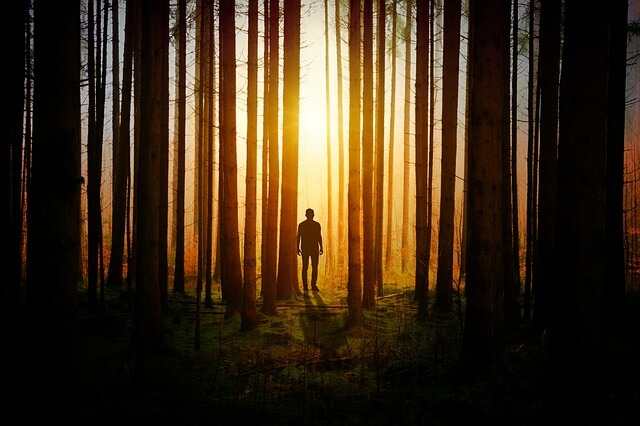
Then, he found a tree that grows naturally in Mt. Iwaki.
I will hang myself with this tree.
Kimura touched the tree.
At that time, he suddenly found that the tree had apples. (He found out later that it was not an apple tree, but it was a walnut tree.)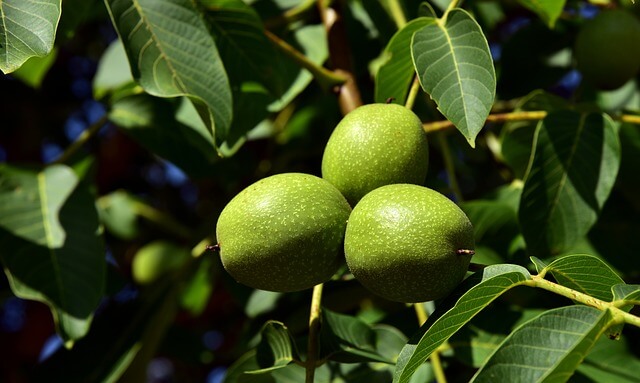
The tree had no damage from insects.
He wondered what kept the tree undamaged.
Why does this tree remain intact?
What’s the difference from the other trees?
Very strange!
Then, Kimura just came up with a good idea.
He thought that if he could find out the reason why the tree was undamaged from insects, the findings could help him grow the apple trees undamaged from insects.
It became the key to solving the pesticide-free production of apples.
This serendipitous encounter with the walnut tree stopped him from suiciding.

A Huge Comeback
As a result of his analysis of the walnut tree, he found that the soil is the key to grow the apples without any pesticides.
Without soil, trees can’t grow.
It’s often difficult to see what’s under your nose.
Kimura did not pay much attention to soil.
He had thought soil as just a place for planting trees.
He was narrow-minded.
He only looked at the surface.
All living things on earth are born from the soil and return to the soil.
It is obvious that the soil is the source of all living things, but he had neglected the soil.
He had looked for safe substitutes for pesticide and chemical fertilizer to grow artificially apples.
The walnut tree made him realize what was truly important.
To improve root spread in the soil, he prepared soil using nodule bacterium of soybeans.
Kimura grew soybeans to improve the orchard soil to the nitrogen-rich one.
The roots of the peanut. Each root nodule contains billions of Rhizobiaseae bacteria. Rhizobia coexist with a plant host and fix nitrogen. Nitrogen is the most commonly deficient nutrient in many soils around the world and it is the most commonly supplied plant nutrient.

On the contrary, if we use chemical fertilizers, the bacteria in the soil would be killed and thus the ecosystem would be ruined.
Furthermore, Kimura stopped cutting weeds in his orchards, because he found that the ground around the walnut tree was overrun with weeds.
After he stopped cutting weeds, his orchards were thickly covered with a variety of weeds like a jungle.
Then, various insects such as butterflies, grasshoppers and beetles came to live in his orchards.
After a while, small rodents such as field mice and hares came to live in his orchards.
Furthermore, Japanese martens and weasels that are natural predators of field mice also came to live in his orchards.
Then, there was a huge outbreak of frogs, the natural predators of moths which were apple pests and thus the damage from pests was reduced drastically.
It was a sort of small kingdom of the wild where there were food chains.
Furthermore, there was an increase of big earthworms in the soil of the orchards.
When the earthworm excretes feces in the form of casts, deposited on the surface or deeper in the soil, minerals and plant nutrients are changed to an accessible form for plants to use.
As a result, the soil drastically improved the conditions of apple trees every year.
Finally, in 1986, the apple trees bloomed and produced a lot of apples in all his orchards.
Apple blossoms
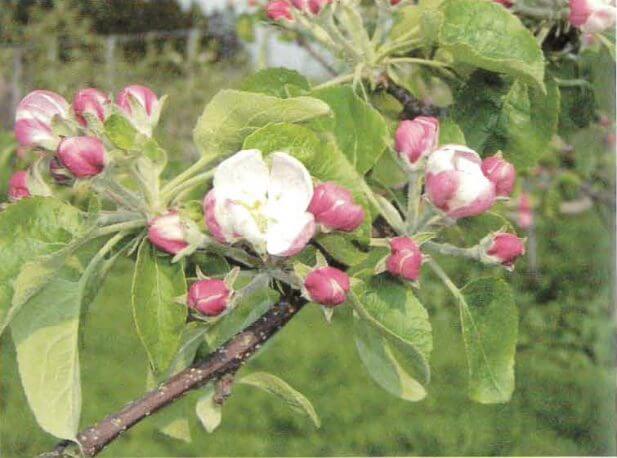

In this way, Kimura succeeded in growing apples without any pesticides and fertilizers.
Professor Shuichi Sugiyama of the faculty of agriculture and life science of Hirosaki University evaluates Kimura saying,
I think that Kimura became the world’s first farmer who completed great achievements to grow apples without any pesticide and chemical fertilizers.
Today, Kimura works to spread his own natural farming method domestically and internationally.
Furthermore, his natural farming system was certified by Globally Important Agricultural Heritage Systems (GIAHS) of Food and Agriculture Organization (FAO) of the United Nations.
In 2013, his book was made into a movie “Miracle Apples” and it won the Audience Award in Firenze Film Festival on May 25, 2013.
Kimura found from his experience that it is crucial to coexist with the nature.
We have destroyed the nature using its power so far.
But, we should respect the balance and the workings of the nature.
As one of all living things on earth, we should coexists with the nature in accordance with the law of the nature.
We do not grow apples, but the nature grows apples.
All we can do is to support the nature so that it can perform well in its workings.
As a result, we receive a reward from the nature.
That is Kimura’s philosophy.
Someday, the day may come when we will live in harmony with the nature.
February 17, 2019
OTAKUPAPA
References
- Akinori Kimura (August 2009). “All is the dispensation of the universe.”
- Takuji Ishikawa (April 2011). “Miracle apples.”
- Akinori Kimura In Wikipedia.


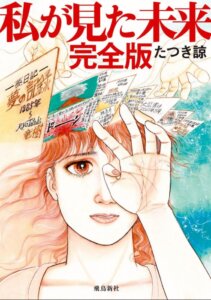
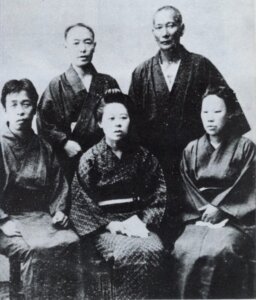
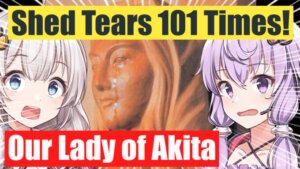
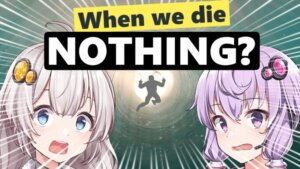
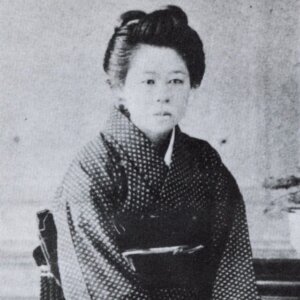
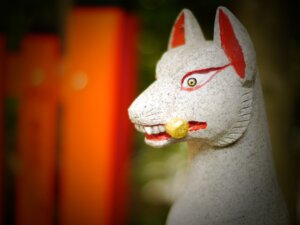

Comments